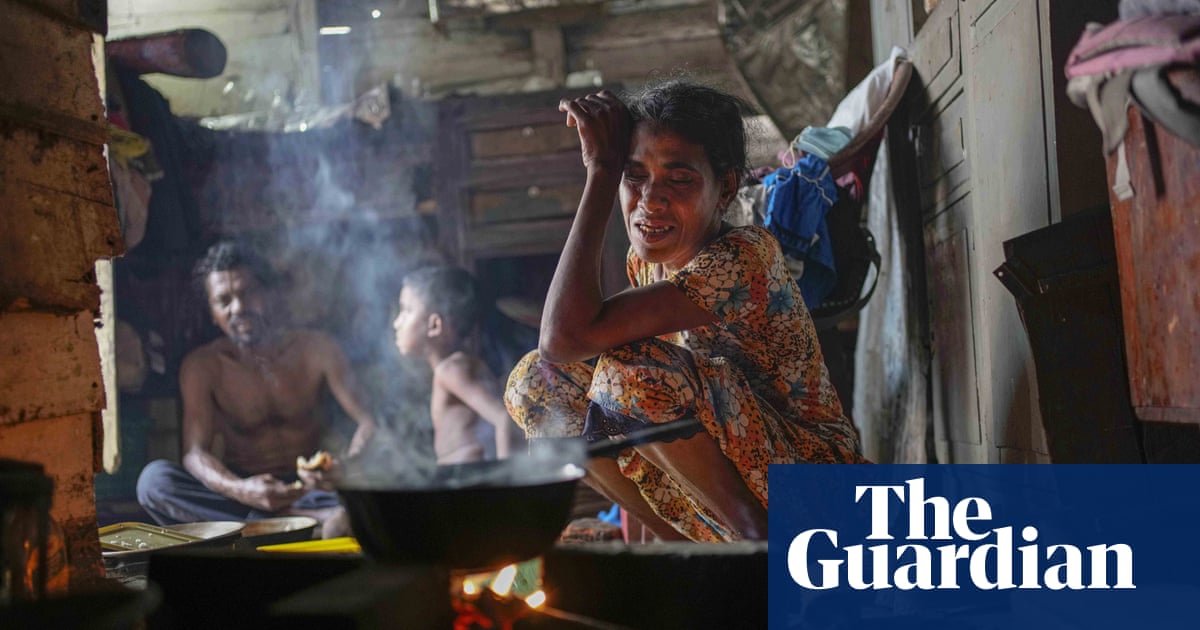
Fozia Ismail has clear memories of being summoned to the living room where the rest of her family sat on the floor huddled around a cassette player. When her mum pressed play, the voice of relatives in Somalia filled their north London flat. “I had to listen to people that I hadn’t met: uncles and aunties, and then record an awkward message back,” says Ismail, whose family comes from Somaliland, a region that later became autonomous.
In the 1980s and early 1990s, before mobile phones, letter tapes were one of the main forms of communication between Somalis in the diaspora and their families back home.
Fast-forward 40 years, and Ismail, a Bristol-based artist and the co-founder of Dhaqan Collective, is celebrating the legacy of letter tapes through Camel Meat and Cassette Tapes, an art and research project.
The project began in 2019 with a series of workshops that brought together 14 Bristol-based Somali elders and 10 British-born Somalis, who discussed the cultural and personal significance of the letter tapes.
“It facilitated conversations that [young people] had never really had with their parents, aunts or grandparents. They ended up finding out so much about them,” says artist and Dhaqan Collective co-founder, Ayan Cilmi.
“[In one conversation a mother] shares this heartbreaking story about this special tape with the voice of her cousin who has since passed, and how she still goes back and listens to it. So she thought it was wonderful that her son now understands why tapes were so significant,” adds Ismail.
Through the workshops and with the help of Waaberi Phone, an online archival platform centred on preserving Somali art and culture, Ismail and Cilmi gathered conversations and recordings of music and poetry.
“There was a story about a woman whose husband divorced her via letter tape,” says Ismail. “There were love letters, advice for those who had gone to Europe, and a lot of praying for the health of the family, as well as chit-chat, gossip about weddings, funerals.”
Many old tapes went beyond family news, they were also deeply political, used as means of communication within the Somali National Movement to start a revolution against the military dictator Mohamed Siad Barre, who later subjected the tapes to strict controls.
In 1988, Siad Barre launched vicious airstrikes in Hargeisa. During the chaos, broadcasters at Radio Hargeisa grabbed thousands of cassette tapes containing what is known as Somalia’s golden age of music (1960s to the 1980s) and buried them in a secret underground bunker, hoping they would survive. Incredibly they did.
Today, the Hargeisa Cultural Centre houses the largest Somali cassette archive, and has been instrumental in preserving and digitising them.
Ostinato Records, a New York-based record label specialising in music from Africa and the diaspora, has also digitised a large number of the tapes, producing a CD of 15 songs in 2017 – which was nominated for a Grammy.
Somali people have a rich oral history: stories, poetry, histories, myths and songs were passed down through generations by word of mouth. It is no surprise, says Ismail, that Somalis adopted the cassette tape as a form of documentation and communication.
When the Somali civil war caused mass displacement and a refugee crisis, tapes took on a new relevance. Not only were they used as a means of staying in touch with relatives back home, but they maintained a crucial link to their cultural heritage and sense of self, while navigating environments away from family and friends.
Ismail and Cilmi hope to generate a similar sense of belonging with Camel Meat and Cassette Tapes.
The pair are now exploring the recording of nomadic weaving songs, a traditional practice under threat because the climate crisis is destroying the natural materials used in weaving.
Environmental instability has added a sense of urgency to their work.
“All of our projects relate to climate change in that Somali people are being displaced internally,” says Ismail. “People aren’t really thinking about preserving the culture out there, they are thinking about surviving and about being displaced.”
They are also determined to move beyond one-dimensional narratives of violence and trauma, to show the breadth of Somali culture – its humour, joy and creativity.
“I feel like there is so much humour in Somali culture,” says Ismail, laughing at the memory of one weaving song where a woman sings “you haven’t given us the snacks bitch. We’ve been weaving for you but you haven’t prepared the snacks.”
Ismail adds: “We’re using material to ignite a conversation, and to make space for playing around and laughing together.”












